DECISION TO LEAVE (2022)
A detective investigating a death in the mountains meets the deceased man's mysterious wife during the course of his work.
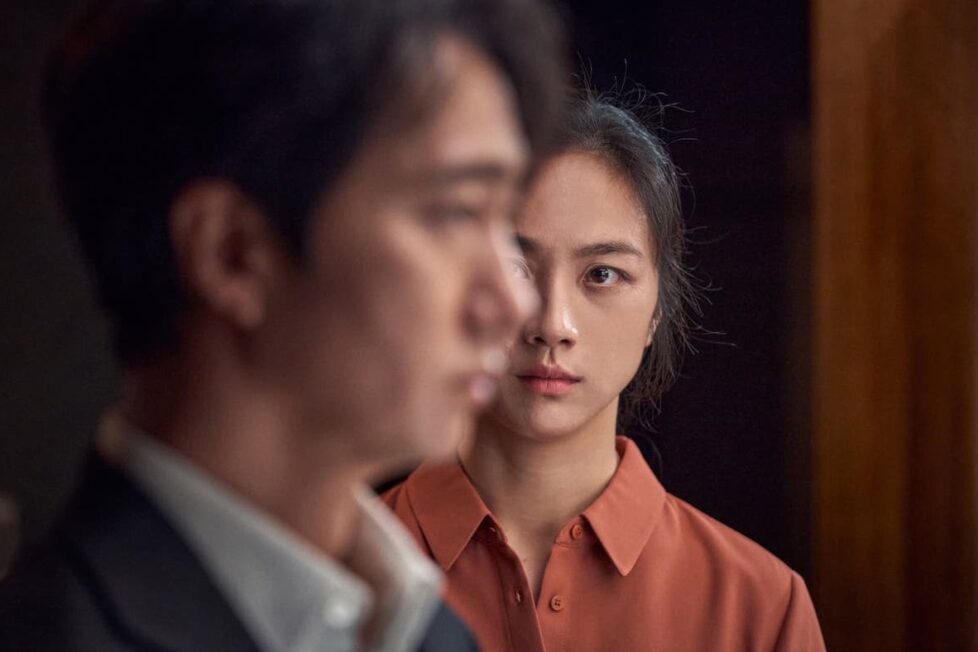
A detective investigating a death in the mountains meets the deceased man's mysterious wife during the course of his work.


“At last.” It’s the first spoken phrase of importance in Park Chan-wook’s Decision to Leave / 헤어질 결심—his first Korean film in six years after The Handmaiden (2016)—said by the film’s deuteragonist, Song Seo-rae (Tang Wei), a Chinese-Korean immigrant who’s just lost her husband, immigration officer Ki Do-soo (Yoo Seung-mok), to a horrific mountain-climbing fall. She’s been taken in by the police to look at his body one last time and the detective on the case, Jang Hae-joon (Park Hae-il), takes note of the way she first says this phrase, repeating it sotto voce like a mantra. She talks about Do-soo’s well-documented obsession with climbing and how she was always worried he’d die in an accident—specifically, that “he might die at last.” It’s a phrase she keeps repeating as Hae-joon continues to question her, an odd but somewhat ominous choice of words justified by her sparse Korean vocabulary, and it’s one of many specific phrases that begin to carry intense and growing importance as Decision to Leave’s incredibly compelling mystery unfolds.
“At last.“—a phrase also worth uttering by longtime fans of the South Korean master, who, even when considering The Little Drummer Girl‘s TV release in 2018, had been out of sight for the better part of several years, and in the buildup to Decision to Leave’s long-awaited release, seemed to have been teasing a mature and subdued change in pace. Indeed, Decision to Leave is certainly a switch-up for the veteran cineaste… although not as drastic as one might think.
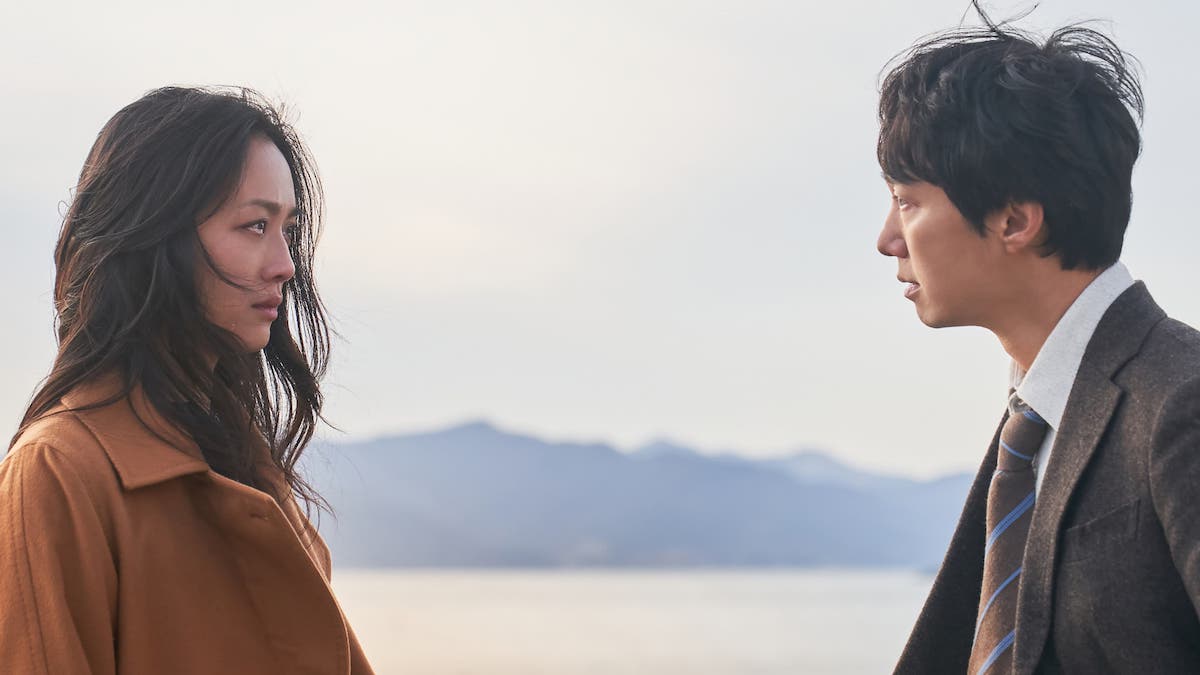
Largely exchanging the violent and sexual extremities of long-acclaimed films such as Oldboy (2003), Thirst (2009), and The Handmaiden for something more emotionally oriented and grounded in a less brutalizing worldview (this is one of few films from Park to be given a South Korean ’15’ rating in a filmography popular for its ’18’-rated films), one would be forgiven for expecting Park’s usual tendencies for high-octane, windingly complex, and revelatory writing-directing to also tame themselves significantly. It’s clear from the outset, however, that his usual devices are still as breathtakingly effective as they’ve always been when wielded to their fullest potential in any narrative context, and the more elegant air that Decision to Leave carries itself with is no exception.
Decision to Leave ranks amongst Park’s best: at once one of the most sensitive romantic thrillers of recent memory, as well as an enigmatic police procedural that shows more of its hand in genuinely unexpected directions, marked by inventive filmmaking flourishes that show just how razor-sharp Park’s eye for writing (alongside his longtime co-writer, Jeong Seo-kyung) and directing still remains. Spearheaded by incredibly layered performances from Tang Wei and Park Hae-il that bring forth the tender, powerful human core at the crux of this film’s robust mystery, there’s barely a hole to be found in this airtight, well-oiled display of virtuosic talent. How special it is to witness a new magnum opus from a master artisan who’s so effortlessly good at casting audiences under his spell—how incredible to realise he’s far from exhausting his astonishing range of talents.
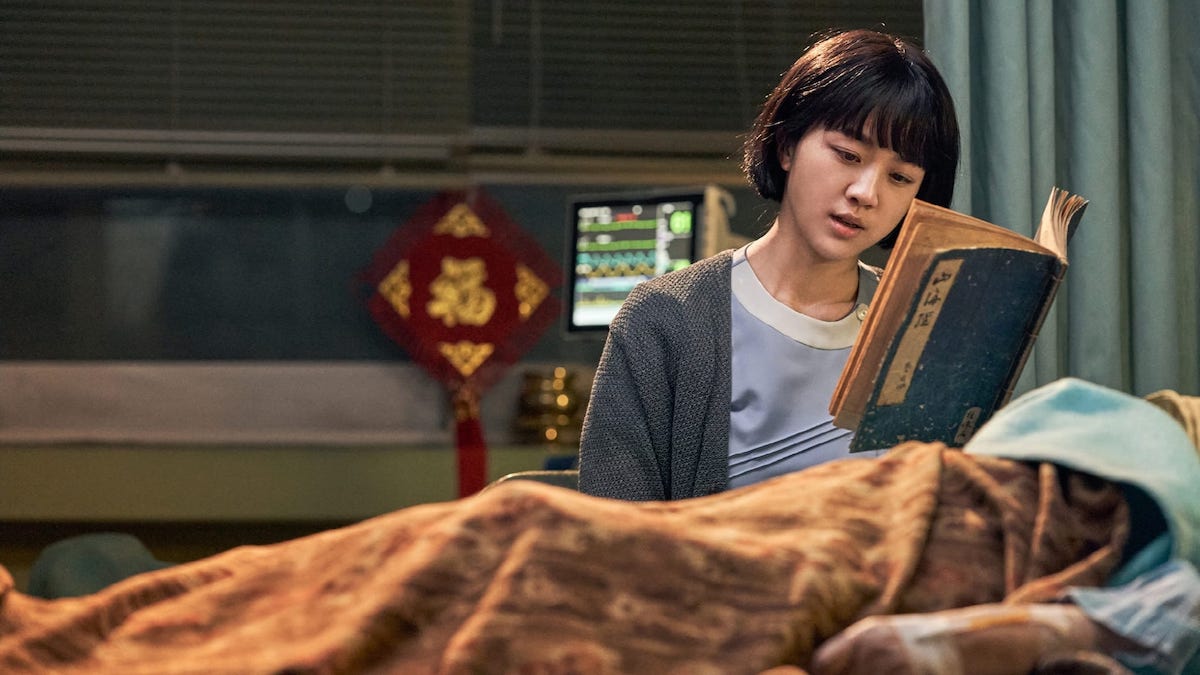
Park is less interested in the red herrings and revelations of your typical ‘whodunnit’, and puts more stock in a delicately crafted story along the veins of something like a smoothly mixed cocktail of Vertigo (1958) and In the Mood for Love (2000) that’s far more about romance than mystery. The detective at the centre of it all, Hae-joon, is a cop stationed in the city of Busan with an incredibly dignified reputation, backed up by a history of significant achievement in law enforcement, and so respected by junior officers that they’ve shown a willingness to move towns to work with him. But it’s the case he’s most recently assigned to—the suspicious suicide of Ki Do-soo—that brings him face-to-face with Seo-rae, the widow he grows drawn to the moment she enters the morgue for the first time, and who brings him down a winding path of infatuation that tests his integrity at every turn. In the periphery of Hae-joon’s life and work are his overly statistical nuclear scientist wife, Jung-an (Lee Jung-hyun), who lives away in the foggy seaside town of Ipo; his bumbling police partner, Su-wan (Go Kyung-pyo); and another case he’s been assigned to—a brutal murder in the regional town of Jilgok-dong, whose origins illuminate more about Hae-joon’s predicament than one might initially expect.
As Hae-joon delves deep into Seo-rae’s life to glean details of her relationship with Do-soo before his death, the methods through which he ends up forming an attachment with her grow more intimate by the second. During one of their interrogations, he buys both of them a rather expensive deluxe set of sushi for dinner, an unusual gesture that perhaps tips his colleagues off to his strangely acquiescing nature. He goes undercover every night to look into her apartment, studying more and more of her daily routine—something that turns out to be a makeshift remedy for his incessant insomnia. All of this isn’t to say that Seo-rae doesn’t notice any of this, either. In fact, the attraction they feel is very much mutual; having been horribly abused by Do-soo during their marriage, and having been constantly threatened via his status as an immigration officer with being deported back to China, Seo-rae also finds herself drawn to the detective on her case who she finds immensely kind to her and dignified in the way he conducts his work. All of this reciprocal affection lays the proper foundations for a downward spiral of obsession from both ends—one that only shows the full hand of its devastation once various truths begin to wash ashore.
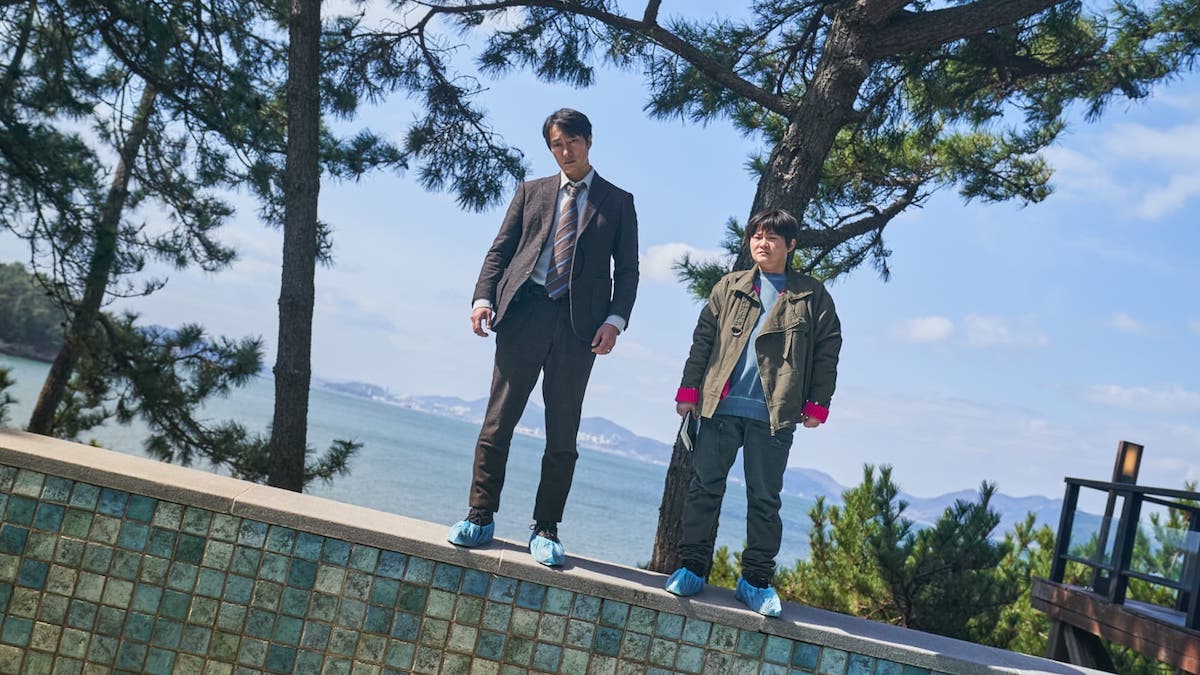
Only so much further detail can be said about this film without getting into its echoic two-part structure and the spoilers that come with it. Rest assured fans of Park’s twist-laden storytelling, though, that the major narrative turns taken in this movie (however less telegraphed and extreme they might appear compared to something of The Handmaiden‘s ilk) are still charged to the brim with narrative purpose, fleshing out the romantic tug-of-war exchanged by its protagonists to absurd proportions. Jeong and Park’s combined writing efforts, having proven themselves as a formidable dynamic duo in just about all of Park’s films since their first collaboration in Sympathy for Lady Vengeance (2005), also bring a kind of literary, elegantly crafted poeticism to many lines of dialogue spoken by these characters. Various words and phrases are constantly reincorporated with different layers of meaning each time, all of which enlighten audiences about the dynamics at play in the film’s central romance and everything in its periphery, and how it all grows to change over the course of this winding web of obsession.
Park Hae-il, having made a name for himself in South Korea with major roles in Bong Joon-ho’s Memories of Murder (2003) and The Host (2008)—not to mention blockbusters like The Fortress (2017) and War of the Arrows (2011)—may just have brought the performance of a lifetime with his portrayal of Hae-joon, a man who finds himself doggedly determined to uphold his airtight dignity as an officer, yet slowly and noticeably unravels from his growing obsession with Seo-rae. It’s a powerful look at a detective struggling to maintain the honour and professionalism he’s adhered to all his life in the face of someone so elusive, mystifying, and charming he can’t help but be drawn to her—he always sees things in her that he admires, as well as things in her that he wants to demystify at the same time. As the story flips into something of a slightly more surprising nature, however, that struggle takes on multiple, increasingly intense permutations, one that forces Hae-joon to question every single instinct he’s ever had as a detective as this case tests him in ways he’s never had to confront before.
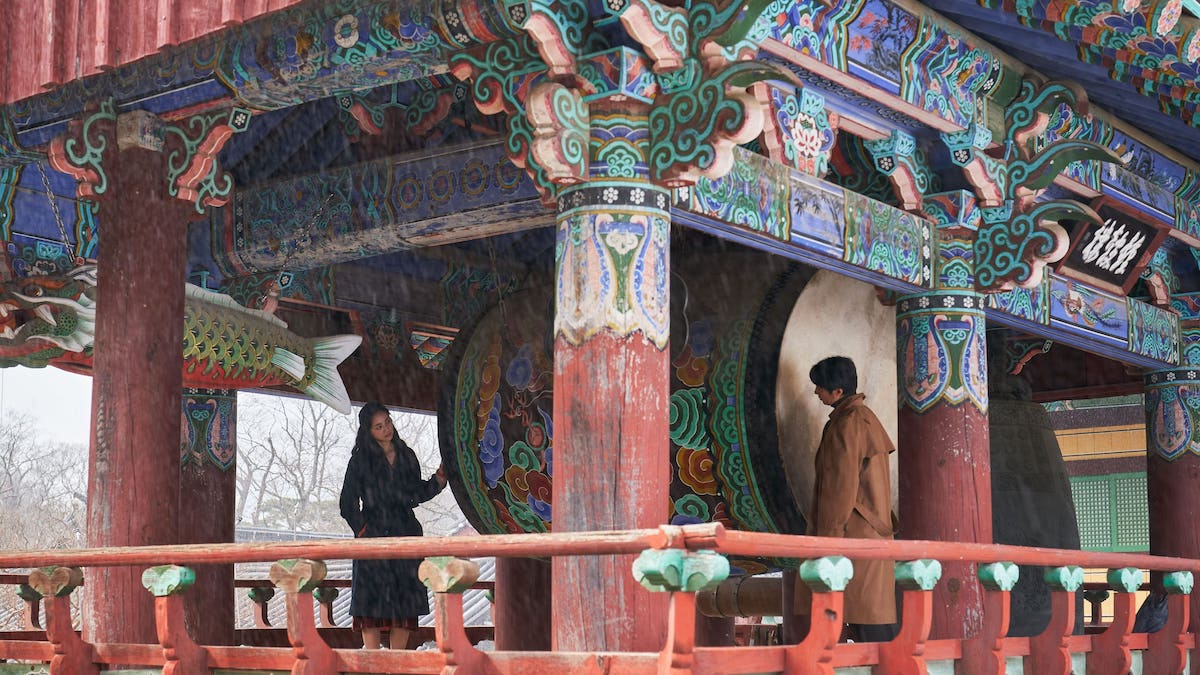
On the other end of this film’s romance is the brilliant Tang Wei, whose charm and dedication to fully capturing the role of Seo-rae brings this femme fatale-esque figure to vastly more intricate dimensions. Every single detail about her performance helps to both clarify the complexity of her character and further obscure her true desires under an expertly crafted air of mystery—for instance, through the contrast between the way she bluntly speaks with a limited Korean vocabulary, versus the slightly more emotionally charged tone of voice she adopts whenever she runs her native Chinese through a translator app for Hae-joon to understand. This is a character who learns Korean phrases through the K-dramas she watches on TV, who often relishes in letting Hae-joon pick up on the real meanings behind her choice of Korean words, and who also faces her own share of moral dilemmas, often regarding her status as an immigrant, as she grasps at various ways for her to grow as close as possible to Hae-joon. Underneath every mannerism Tang shows are subtle expressions of desire, desperation, and unfettered determination, to a point where we barely even have to understand why Seo-rae acts the way she does—one can glean so much about who she is by a simple glance at her.
This is a film as concerned with the obsession between the two leads as it is about the perspectives through which said obsession is perceived, and countless visual tricks employed in the film inventively emphasise how important those perspectives are. The cinematography, for one, is filled to the brim with Park’s trademarks, like wide shots that capture beautifully crafted wallpapers and set design, or shots with riveting methods of movement and zooms, colour-graded to exquisite cooler colours whenever it gets the chance.
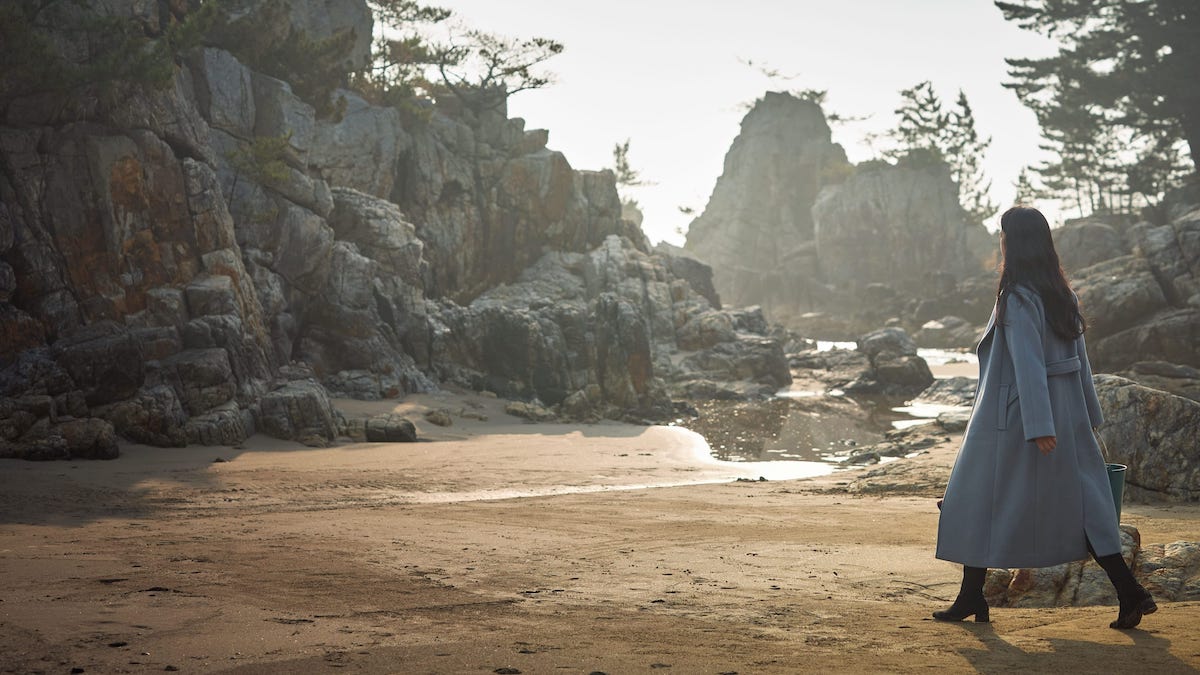
Perhaps its most clever trick, however, is finding point-of-view angles from the most unexpected sources—the eyes of dead men, screens and monitors during police interrogations, the red lace that covers up an urn, and cheekily enough, through a literal fish’s eye—many of which bring attention to the characters by finding distinctly important ways to gaze at them, and interpret the technological barriers that lie between how they communicate. Combine this with editing from Kim Sang-bum that transitions from one scene to the next in creatively seamless ways, keeping the pacing in check while being complemented by Cho Young-wuk’s hypnotically string-heavy score, and it becomes clear just how well-oiled a machine Decision to Leave is when viewed from all of its perfectly installed components.
Drenched from top to bottom with exquisite attention to atmosphere, Decision to Leave gives us so much to symbolically and literally mull over, both in terms of how to interpret its characters and how to comprehend their every action, that by the time its breathtaking conclusion barrels into view, the feeling of total, absolute culmination that it offers is simply indescribable. We’re given clues to the sheer significance of details like the shades of blue and green that emerge throughout the film, which mix into the narratively appropriate uses of turquoise; the supposed “benevolence” of the mountains where the film begins, and the “wisdom” of the sea where the film reaches; the recurring usage of Jung Hoon-hee’s melancholy classic ballad “Mist,” set to the backdrop of foggy seaside towns; the contrasting ways different characters interpret the word “we”; and the list continues almost endlessly.
All of this works in service of a mystery whose obsession not only applies to its central romance, but to the audience poring over even its smallest minutiae, living through the perspectives of its characters in such intricate and intimate detail, and being hit at the end with one of the most memorably potent denouements of a romance-mystery film in recent memory that’s just as ravishingly beautiful as it is crushingly moving. As the full extent of Decision to Leave‘s intrigue washes over the audience, it rewards them with a sincere, deeply felt look at longing and obsession as permanent, lingering forces; ones that can drive people to the brink of completely losing who they may have once believed themselves to be, just so they can cling to whatever love they feel and see for as long as they possibly can.
SOUTH KOREA | 2022 | 138 MINUTES | 2.39:1 | COLOUR | KOREAN • CHINESE

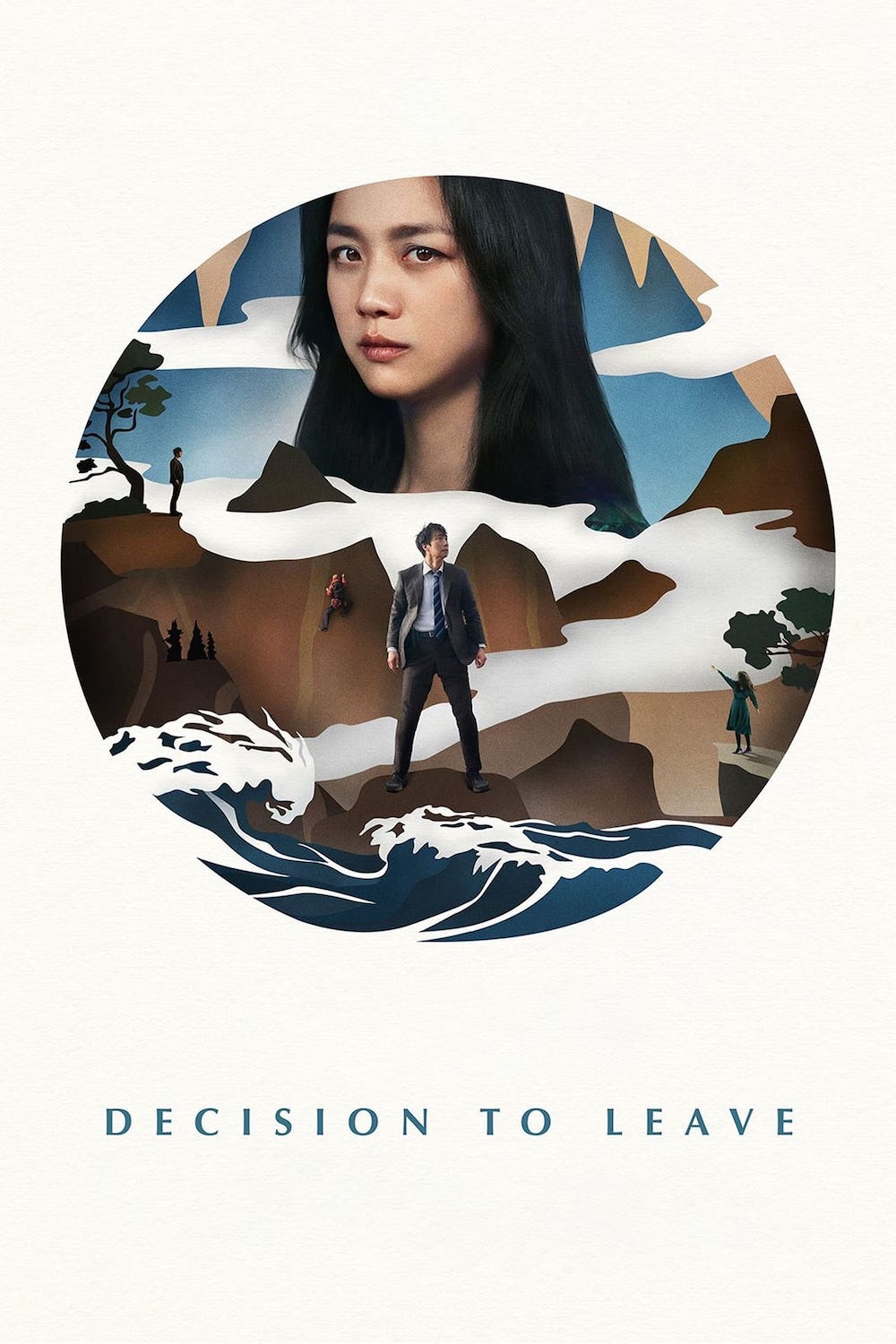
director: Park Chan-wook.
writers: Jeong Seo-kyung & Park Chan-wook.
starring: Tang Wei, Park Hae-il, Go Kyung-pyo, Kim Shin-yeong, Lee Jung-hyun & Park Jeong-min.
